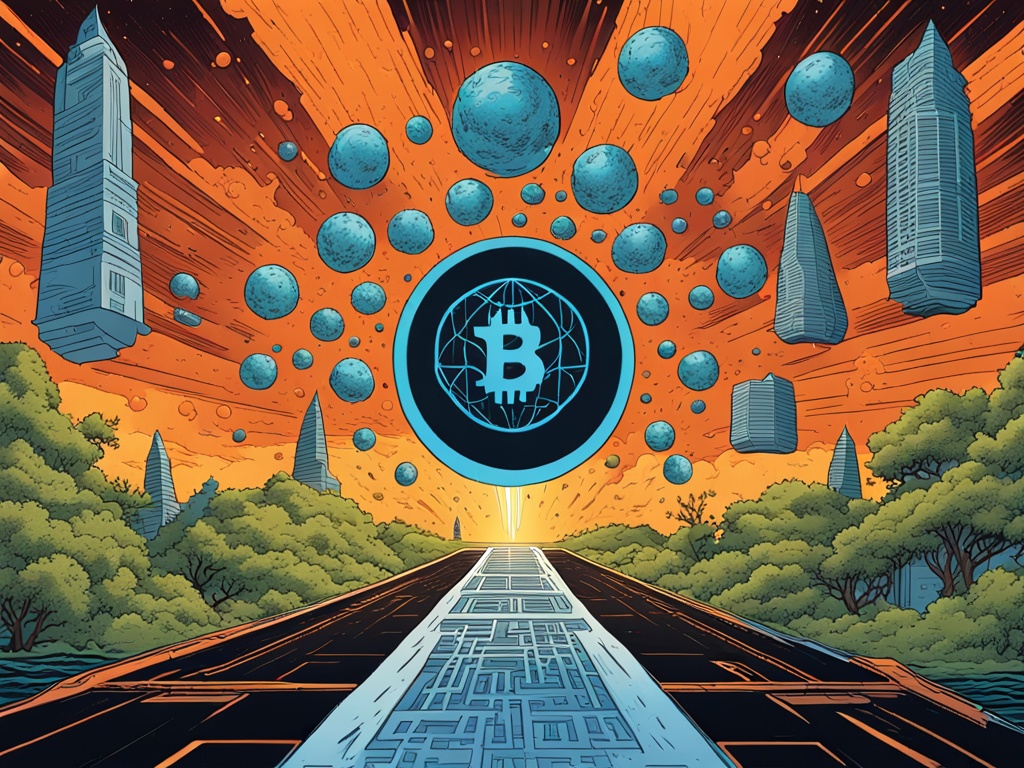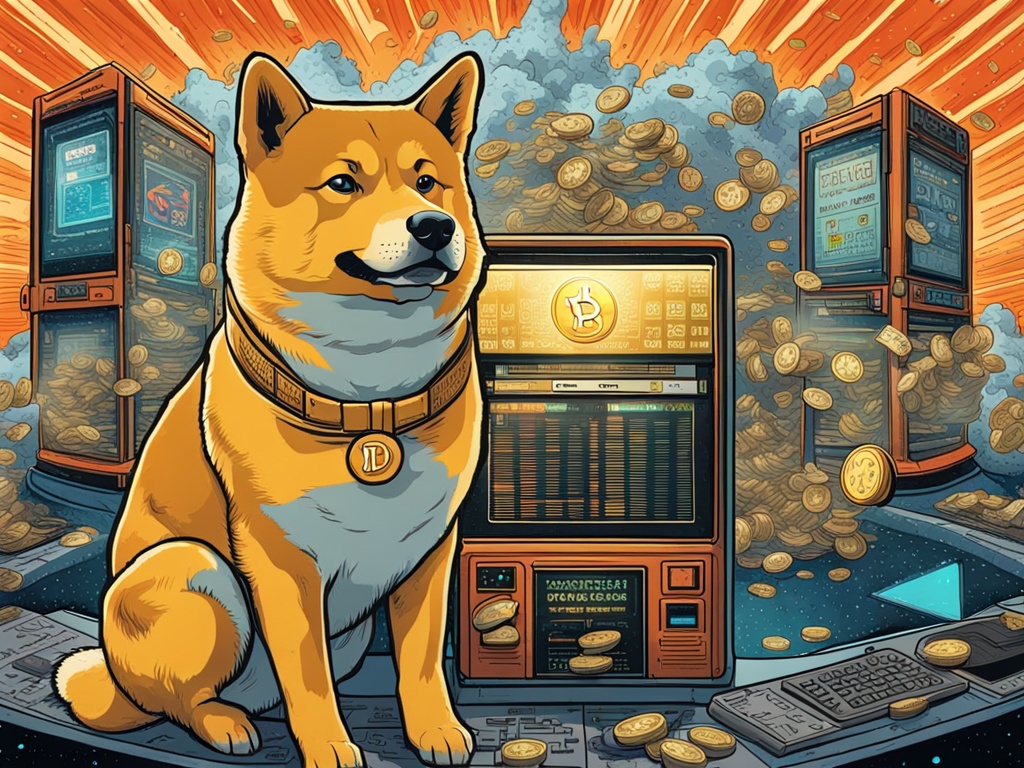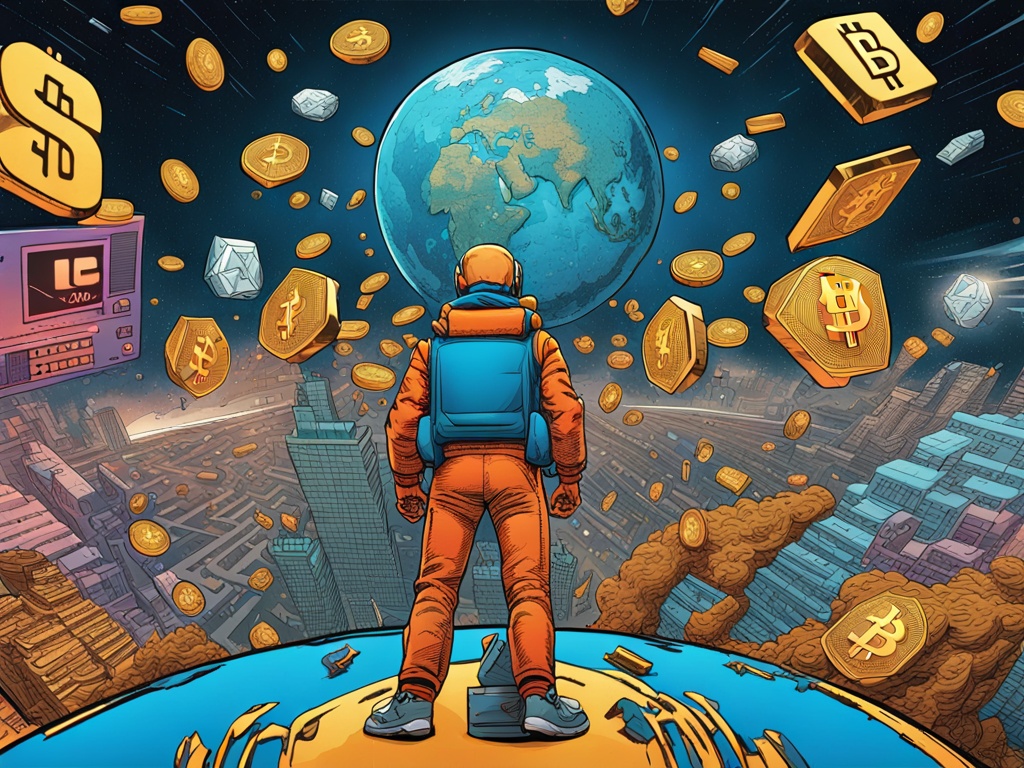The Ripple Effect: Is Ripple the Major Roadblock to a Bitcoin Reserve?
Imagine sitting in a cozy coffee shop, surrounded by the aroma of freshly brewed coffee, with a friend who’s eager to understand the complexities of the crypto market. Today, we’re diving into an intriguing discussion that could reshape the way we view cryptocurrencies and their impact on our financial future. More specifically, we’ll explore an article that raises a heated debate: Could Ripple actually be the biggest obstacle to establishing a Strategic Bitcoin Reserve (SBR)? Grab your cup and let’s chat about this!
Key Takeaways
- Ripple’s Influence: Ripple is allegedly lobbying against the establishment of a Bitcoin Reserve to promote its own central bank digital currencies (CBDCs).
- Public Tensions: The feud sparked public statements from Ripple’s CEO and Riot Platforms’ Vice President, highlighting the divide between traditional cryptocurrencies and CBDCs.
- Political Involvement: Ripple’s involvement in political campaigns reveals its strategic moves to influence cryptocurrency policies.
Ripple’s Alleged Opposition to a Bitcoin Reserve
First things first, let’s clarify what a Strategic Bitcoin Reserve is. It’s essentially a proposal for a reserve of Bitcoin that could be utilized by governments or institutions. The aim? To stabilize and support the cryptocurrency ecosystem, making it more robust in the face of market volatility. Now, it seems that Ripple, a prominent player in the crypto space, is arguing against this initiative.
Pierre Rochard, the Vice President of Research at Riot Platforms, made waves with his assertions about Ripple’s intentions. He claims that Ripple has been lobbying heavily against the SBR, suggesting they’re spending millions to sway political opinions. Picture this: Ripple, with its eyes on the potential success of CBDCs, doesn’t want Bitcoin, which operates on decentralization, gaining too much traction. Rochard even straightforwardly commented that the biggest hurdle for creating a Bitcoin Reserve isn’t traditional financial institutions, but Ripple itself!
It almost feels like a sibling rivalry in the crypto world, right? While Bitcoin champions decentralization, Ripple seems to be banking on a centralized approach through CBDCs. You might even say it’s like a classic David vs. Goliath tale, but the roles are pretty mixed up here.
The Central Bank Digital Currency Dilemma
What are CBDCs, you ask? These are digital versions of fiat currencies managed by a nation’s central bank. Unlike Bitcoin, which gives individuals power over their finances, CBDCs are more about government control. It’s easy to see why cryptocurrencies like Bitcoin might feel threatened by their emergence.
Rochard pointed out that Ripple has shown a keen interest in helping governments develop CBDCs. It even launched a platform aimed at streamlining the design and issuance of these digital currencies. It’s as if Ripple is saying, "We’ll help you modernize your money, but let’s keep it all under our roof."
While Ripple touts CBDCs as innovative, others like Rochard view them as tools that contradict the very essence of cryptocurrency—decentralization. It’s no wonder there’s a palpable tension in the air. If you think about it, it might strike you as similar to that friend who borrows your favorite book without returning it. You want to share, but there’s also a sense of ownership at stake!
Political Play and Strategic Moves
Ripple’s political maneuvering is noteworthy. It has effectively positioned itself in the corridors of power—like a chess player making strategic moves to gain an advantage. For instance, Ripple co-founder Chris Larsen supported Kamala Harris’ presidential campaign and contributed significantly to political action committees backing her. This kind of involvement can make a huge difference, as you can imagine the implications on policy-making around cryptocurrencies.
But the game changed after Donald Trump’s victory, especially given his vocal opposition to CBDCs. His stance? They’re a form of “government tyranny.” If you were Ripple, would you be sweating a bit? The landscape you thought would play to your strengths suddenly looks much more treacherous. It’s like planning a picnic on a sunny day, only for dark clouds to roll in and rain on your parade!
What’s particularly fascinating is that while Rochard insists Ripple is the issue, Ripple’s CEO, Brad Garlinghouse, counters these claims. He argues that the company’s lobbying and efforts are actually increasing the chances for a crypto strategic reserve to happen—one that could very well include Bitcoin. This clash of perspectives is like a family barbecue where everyone has a different idea of what the main dish should be. Do you pile your plate with burgers, or do you go for something lighter? It’s a mixture of tastes and agendas, but in the end, they’re all still at the same table.
The Road Ahead: Bitcoin vs. CBDCs
As investors, enthusiasts, or even casual observers of this fast-paced market, it’s vital to reflect on how these dynamics could impact your decisions. If Ripple indeed stands as a major roadblock to a Bitcoin Reserve, what does that mean for Bitcoin’s future? Could we see a world dominated by CBDCs instead of decentralized cryptocurrencies?
But here’s the kicker—what if there’s room for coexistence? As the crypto market evolves, maybe we’ll witness an amalgamation of both concepts where they support each other instead of battling for supremacy.
In the grand scheme of things, it feels like we’re living in a pivotal moment for cryptocurrencies and their underlying philosophies. What will the future hold?
Final Thoughts
So, as we wind down our coffee chat, take a moment to ponder this: How do you perceive the roles of centralized and decentralized systems in the financial landscape? Are they natural competitors, or can they learn to work together harmoniously in our evolving digital future?
Key Phrases: Ripple obstacle to Bitcoin Reserve | CBDCs and Bitcoin | Strategic Bitcoin Reserve





 By
By
 By
By
 By
By


 By
By